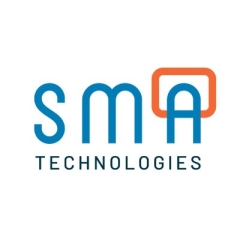What is our primary use case?
We use it predominantly, and almost exclusively, for core processing with our financial system.
How has it helped my organization?
OpCon makes it so we are lights-out for most of our morning and evening processes.
It makes it super easy to notify us when something is wrong. It allows us to incorporate a wide range of custom processes or notifications. It's pretty agnostic in terms of how it does things. It doesn't matter how you've been doing things. As long as it can be called and given a command line parameter or interface parameter of some sort, it works really well. The biggest attractor is it allows us to incorporate so many different processes that wouldn't normally work together, making it a seamless schedule of events that happens and is really easy to both manage, update, change, and review. It's just a really slick piece of software that makes things super easy.
From the sixth through the 17th, that is where we have some sort of processes that have been out for the day. We have 324 schedules, 177 subschedules, and 2,996 jobs defined. Everyday, we have about 30 different processes defined. On special days, like end of month, first of the month, etc., we have a lot of stuff to find in there, which means there's no person doing it. It's all done by the system, taking that workload off of having a person. We are able to make sure that we have people concentrate on the things that really require a person and not the remedial tasks. This has been a huge advantage to having the software.
Our manual processing has been automated in the realm of 70 percent by this solution. There are only a few things that we still do which require a human touch.
The solution has streamlined operations. We have written custom jobs to do particular things, but OpCon is definitely the one that manages running them at particular times. Often times, those jobs have to run after hours. So while we still develop and spend time and man-hours writing code, once it's done, OpCon is running that in the afternoons or evenings. This is usually done during off hours when a person would normally be required to be here and do it. Instead, OpCon is available, consistent, reliable and easy to get things in and working quickly once we develop and get them working. OpCon takes care of the entire process, including notifications that we define if something were to happen so we know what to do next. Again, it's simplifies the entire process.
The solution freed up employees to do more meaningful work as a result of automation. However, tasks like managing user credentials, permissions, or access takes a human eye to determine what to do next unless it's something very straightforward. I can't really have OpCon go through and determine that user X needs to be moved to group Y unless it's a scripted piece. That still takes a human eyes and is done by people. OpCon has taken away things that happen repetitively every day, regardless of what's going on. It has definitely allowed us to separate those two process.
We have three employees (four including myself) who have been doing these processes in some capacity in the system. The workload that I would normally be doing, I push a lot of those jobs over into this and define a lot of them. Probably anywhere from 20 to 30 percent of what I do, I've been able to offload in OpCon. For the other staff, the evening and morning procedures are the biggest in terms of freeing up time because these are the things that we do before we open and after we close. Of those processes, nearly 90 percent of what we would normally have done with a person have been moved over.
Our employees are happier doing things that require them to think. When you're doing the same task over and over again, it's pretty remedial. It is nice to have a system take care of that for you. People tend to want to be able to think about what they are doing and have some brain processing going on instead of doing simple data entry. Overall, I expect that they're happier about the piece that they're working on versus doing the things that OpCon never complains about, which is the same thing every day.
What is most valuable?
- Scheduling
- Job concurrency
- Failover
- Failed job notifications
The schedule processing is our biggest reason for using it.
What needs improvement?
As you're doing a scheduler, oftentimes you end up doing some of the same things over and over again as you define jobs. There are generally some well-used use tools available that the system can interact with. My suggestion is try to find ways to have built-in interactions with those pieces of software. As an IT person, and I say this with caution because I know what it means to code something to a piece of software you have no control over, I would like to have an interface with PowerShell.
PowerShell has a lot of functionality. We use it a lot because we're a Windows shop. Having a built-in tool or interface with PowerShell would go a long way. At the same time, it's not like I can't do it externally. This is probably more like a suggestion than it is a complaint.
For how long have I used the solution?
The solution was purchased before I got to the company, which was in April 2012,
What do I think about the stability of the solution?
The stability is near perfect. I won't say it is perfect, but I've never had a database error (knock on wood), corruption, or system loss that wasn't due to something else, like a power failure. The software has always operated. It always returns appropriate messages. It's very reliable.
The director of IT and a data center analyst are the ones who manage it overall. We write the jobs. We do the initial QA, essentially maintaining the system directly.
What do I think about the scalability of the solution?
I know that we use only a portion of what is available. While we do a lot in it, we don't actually do any multinet code. We're very limited on most of our processing, which is sequential, since we are a financial institution. Almost all of our schedules are: job one, job two, then job three. This is versus doing a lot of submitting of maybe hundreds or thousands of jobs at one time every few minutes. We're really linear, so we're not even using the full capacity of the scheduler, which allows for things where you do several different nodes producing different jobs at different intervals which all interact or don't interact. We don't do that. We're pretty straightforward.
We have four people who directly use it. We then have a group of about six individuals who use the extended version. This is an interface that goes through a web browser that then pulls jobs and runs them.
The direct users are called computer operators. They are the ones who run jobs on the core financial system, which is what this is primarily doing. They will interact with failed jobs. They will, in some cases, manually start jobs and review processing to ensure things are working as expected. There are two subsets of those individuals that actually create new jobs and make changes. The additional six people that I mentioned are just users. They will go in and specifically call a select number of jobs to start processing in any particular process.
We have small plans to increase usage. It comes down to whether or not it can be fully automated and does it benefit the institution as well as us to automate it. In some cases, it's a very small task where you're maybe modifying a file and sending it somewhere. That may or may not be easy to automate. In which case, I am less inclined to put it in because it takes too much time to build up. Other times, it's a process that gets filed from a vendor or posted to the core, then sends out an automated report. Those are the things that I like to put in it because I don't want to touch it at all. Therefore, it really depends on the complexity of the process, then the value of automating it.
Overall, we are primarily focused on things that relate to our financial activity. There are 10 to 15 percent of the jobs that we have defined that don't do something directly related to the financial system. That probably will increase over time, but not nearly as much as what we do for the financial system.
How are customer service and technical support?
The technical support is very high in terms of quality and response. I have open up maybe four or five tickets over the course of a year. The type of tickets that I open are either clarification on a new feature or a request for support on doing an upgrade, and that's just to make sure I have someone to fall back on since we have never had an issue. The last ticket I open typically every year is a status update on our new license after renewing. So, it's pretty limited on what we ask for. Again, we're sort of a specialty organization. Being a credit union, an automation of jobs is generally focused around the financial system with most of our jobs being linear. This kind of limits the complications that we've run into. For us, the support has been a great resource that we rarely call.
Which solution did I use previously and why did I switch?
On a scale of one to 10, where 10 is simple, super easy, and effective, that's what I would give it. At my prior work, we had another scheduler, and it was okay. It did its thing, but OpCon is, by far, super awesome.
The solution I used previously was called ISE, and it was related to another core provider and the solution that they provided. This was probably at least 10 years ago. I switched because I came to this institution who was using SMA before I got here. So, I adopted it simply because it was the resource that we had. I don't regret it one bit.
I'm kind of jaded now because I've been using this solution for so long. My previous solution was obviously an older version, so I'm comparing against something from way back when it was more convoluted. It was harder to get the results that I wanted from the interactions with different jobs. Having used OpCon for the last eight years, I'm familiar with how all the different pieces of how I set something up. It's super easy to set things up. At this time, I don't know that I have a good comparison against another software.
How was the initial setup?
The initial setup was pretty straightforward. It's a nice piece of software that gets installed. There's a database configuration with a the support crew.
We scheduled the deployment for a day, and it took just a few hours.
It didn't take so long to put it together. It was pretty simplistic. It took maybe 30 minutes to an hour to get something in there and test it out to the point where we were happy with how it was operating, then using it going forward and making any changes. Initially, it probably took 30 to 60 minutes to get something in there (the first time). That's mostly going through testing as well as developing. It isn't just putting it in there. Putting it in there, you could probably get a reasonable schedule defined in less than 10 minutes. But, if you're talking about running it, fixing errors, etc. related to scripts, not necessarily related OpCon, it takes probably about 30 to 60 minutes. Nowadays, setting something up, it takes me less than 10 minutes to define a simple or basic process.
What about the implementation team?
The deployment was all internal; it was the staff here. We educated ourselves. We didn't even go through any formal training. We had a few remedial schedules that had been built before I started with the help of SMA just to define a few processes. From there, we used those as an example for QA, testing, etc. to find out what worked best for us. We developed those through actual use and best practices internally.
The way it was initially set up, support crew got in and validated the installation that the database was correctly set up and the interaction between the software and database was good. It was pretty straightforward and smooth. We did an upgrade. We paid for SMA to do a review of our system, as well, to ensure the upgrade was good, and there were no issues with that. It was a pretty clean install, and it worked out really well.
Our implementation strategy was mostly to define the processes that required no interaction from a person to begin with and create those jobs and schedules in OpCon, then test them out. From there, we would move onto more complex processes that may have required file drops or something like that. So, there was a trigger. Initially though, it was just to find the jobs that could be done right now that required no interaction and have those all implemented, tested, and working, then move into a more complex mode. Over the course of three to four months, we moved from having basic jobs to adding in a bit more complexity, then flushing out the defined larger shifts, like morning and evening.
What was our ROI?
It has reduced data processing time for some processes in the upwards of 50 percent. This is because the amount of time it takes someone to go in and type something or copy/move something over has exponentially increased. It's faster when the system is doing it because you don't have to wait for user input, so it's not necessarily that the overall process has gotten faster because searching for things or making documents still takes time. It's just the system, when it's through an automated scheduler, can go a lot faster because it can do all these things faster, not necessarily because the process itself has improved. There is definitely time savings.
If we're talking about posting a particular file, then that will definitely be done in the system a lot faster because there is no user input. As soon as the next is available, it is off to the next process. Whereas, if your user were doing it, there's evaluation, checking to make sure it worked right, and looking at some of the output. All this can be evaluated by the system very quickly, so it definitely has increased the time. I can think of one example where a morning process, back when we did a lot of it by hand, probably took anywhere from 30 to 40 minutes. Now, we're talking about 10 minutes flat.
The cost of ownership for what we have now means that I don't have to have another full body. What I pay for this software is at least one-third of what I would pay for a full body. That's a direct cost savings.
Before the solution was fully flushed out, we had someone here until well after closing and at the end of every month when we have special processing. So, there is someone always processing at the end of the month. It was a drag on both staff and personnel because anyone who did processing during end of the month or during those off times would not be here during the week at certain times or come in later. Therefore, the scheduling was sort of off. The morning process is still one where we have some additional things required of them, but the evening is totally lights out. Once we close business for the day, it's about an hour, then the staff member goes home and nobody is here. The system takes care of the rest. We've definitely seen that return, as we don't have to have that dedicated person in the evening.
What's my experience with pricing, setup cost, and licensing?
It is a pricey solution. Comparatively speaking, you can certainly find schedulers which are cheaper. In some cases, you can find ones that are free or use free solutions. However, OpCon is by far the superior quality product, and you pay for that. This also has a cost savings associated with an FTE, so you can more than outweigh the cost of the solution if you were to reduce the staff that you have onsite. Plus, this means that you don't need to have someone during irregular hours.
One of the things that I run into is when you have staff that work irregular hours, this means you don't have that same staff (or that same availability) during the time when people are here. When people call on the phone, they don't want to talk to a system. They want to talk to a person. I would much rather pay to have a person here than have a person here during off-hours when there is nobody calling. The cost savings, removing the FTE, and having the system process everything automatically, as well as give me notifications in the same way that it does it everyday and I can always expect it at the same time, that is phenomenal.
Which other solutions did I evaluate?
I came in after it was already purchased and in place. If I remember correctly, the CIO did the evaluation. This product was making the rounds. It was heralded by other institutions and had a good reputation.
What other advice do I have?
The cost is just shy of $20,000. That's for two licenses annually, production, and failover.
Spend time flushing out the processes that you want. Add everything you possibly can so you don't have to do it.
Look hard at the solution that you want. I highly suggest looking at OpCon. Frankly, that's all I ever tell people about when they talk about the scheduling. I ask if they're on OpCon and if they know about it.
Overall, I don't really have any complaints. The system does exactly what I want it to do. In this current iteration. If it never changed, it still does what I need it to do, and it does it the way I want it to happen. I'm content with the way it operates.
I would rate it a 10 (out of 10). It doesn't have to have another version increase. It doesn't have to add any change to complete what I need it to do right now. If it stayed exactly the same, I would still be happy.
Which deployment model are you using for this solution?
On-premises
Disclosure: My company does not have a business relationship with this vendor other than being a customer.














